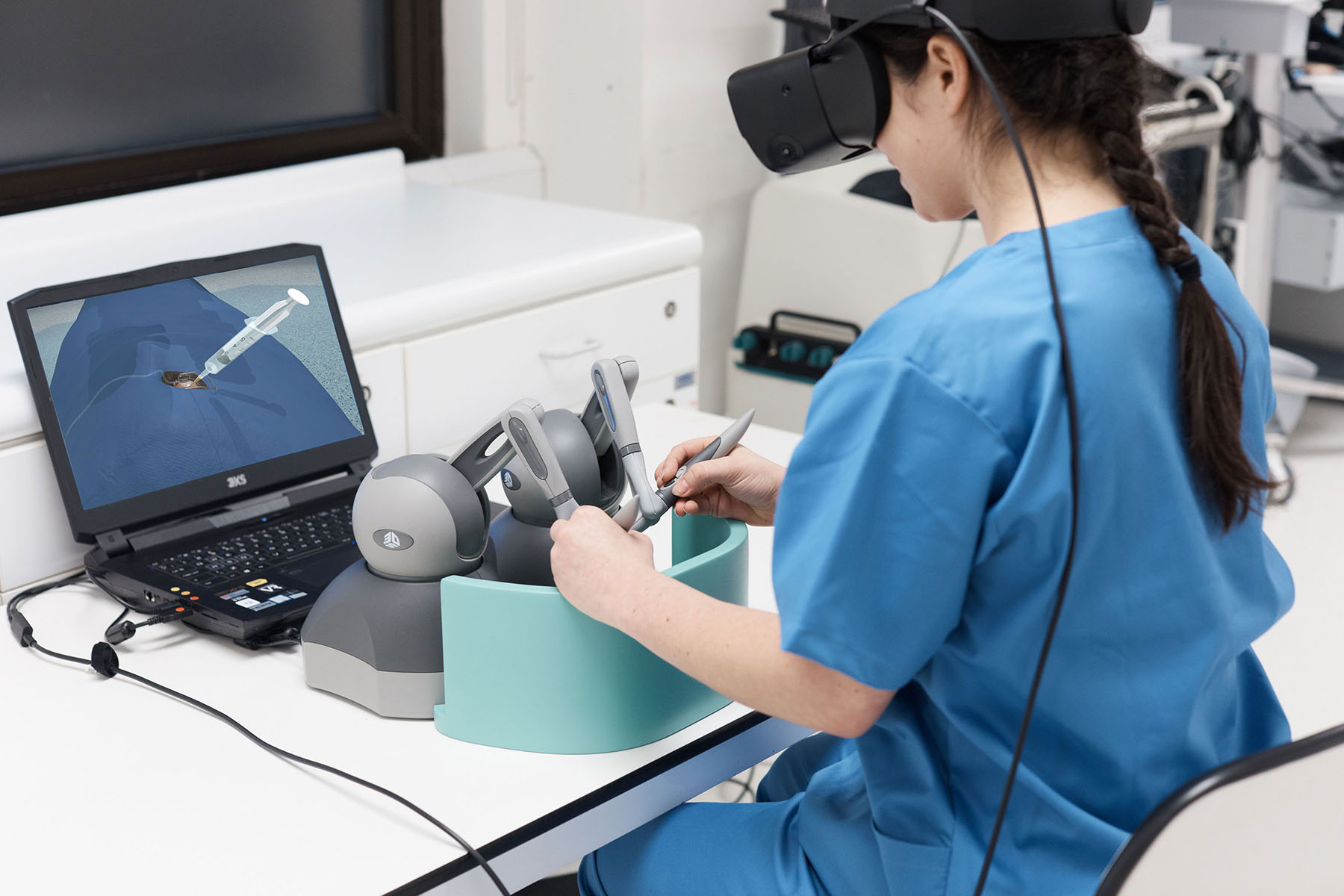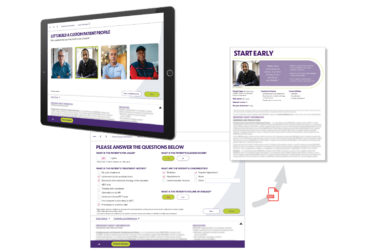FundamentalVR
Contact Person:
Maayan Wenderow, VP of Marketing
maayan.w@fundamentalvr.com
FundamentalVR is a groundbreaking healthcare technology company working at the intersection of immersive, virtual reality (VR) technology, haptics (the sense of touch), and machine learning. The addition of haptics to VR medical training software creates immersive experiences that truly mimic real-world procedures.
Launched in 2015, its Fundamental Surgery platform is the world’s first to combine VR, haptics, deep data, and multimodal learning. The platform uses medical simulations to mimic the physical cues of surgical actions, medical tools, and even tissue variations. Its proprietary HapticVR technology is made possible by the company’s Haptic Intelligence Engine. The hardware-agnostic solution delivers kinesthetic force feedback into base station-held instruments or haptic gloves.
Recent advances in its 3D spatial animation technology gave the platform enhanced soft tissue capabilities that let users manipulate, feel, and explore anatomical textures. These capabilities allowed FundamentalVR to add endovascular and urology surgical disciplines to the platform.
Currently, Fundamental Surgery has been deployed in over 30 countries and used by life sciences, pharmaceutical, and medical device companies in disciplines ranging from robotics, minimally invasive surgery, ophthalmology, gene therapy, and more. The FundamentalVR development teams work with leading KOLs in each of its key medical disciplines to perfect the sensation of each procedure, down to individual anatomy parts
Its utility was affirmed in a recent clinical trial published in the Annals of Medicine and Surgery. The trial evaluated the educational impact of integrated haptic feedback in an immersive VR bone drilling simulation on real-world benchtop performance. The study led by researchers from St George’s University Hospital and Portsmouth University Hospital in the UK found that HapticVR technology within Fundamental Surgery improves surgical training outcomes by over 40%.







